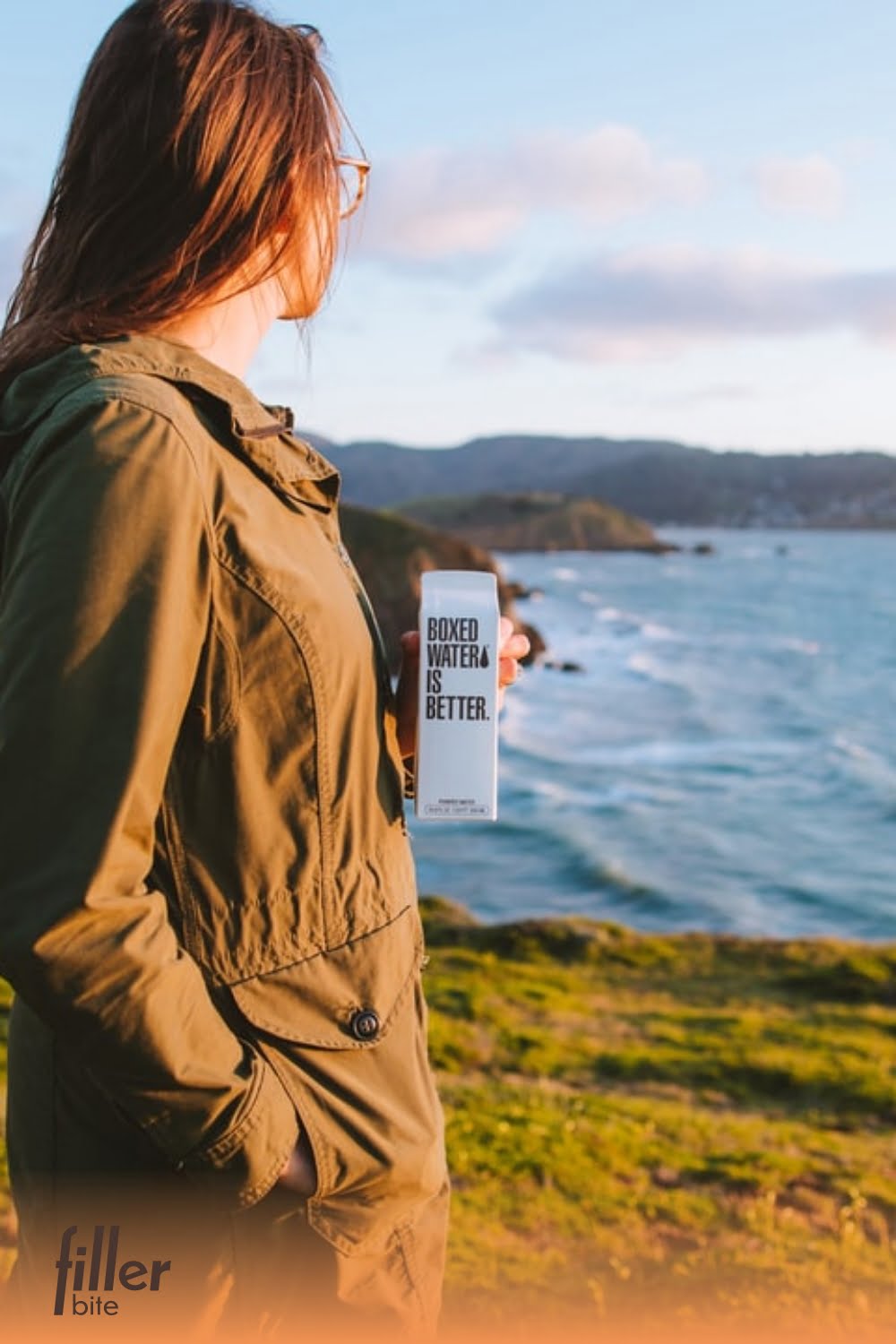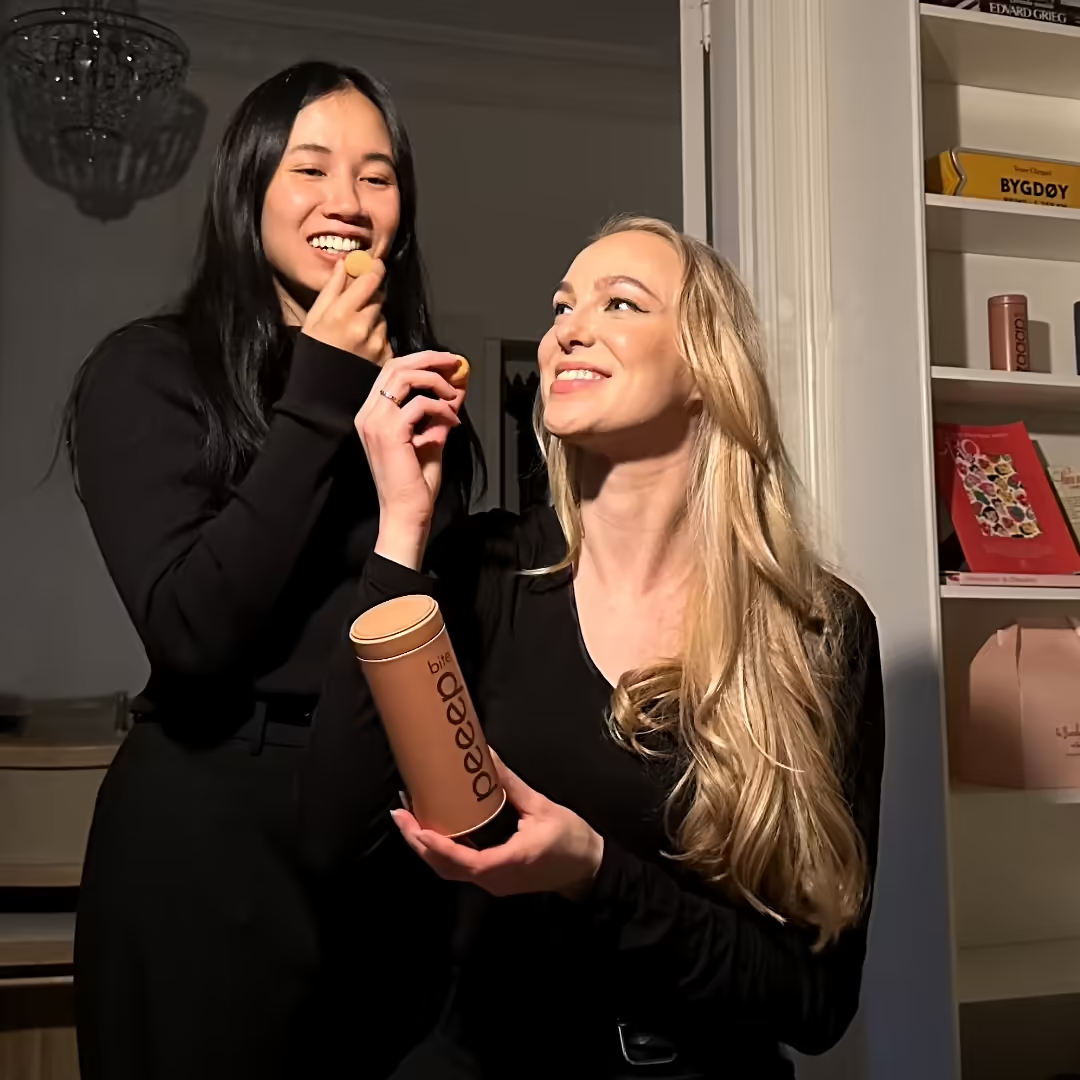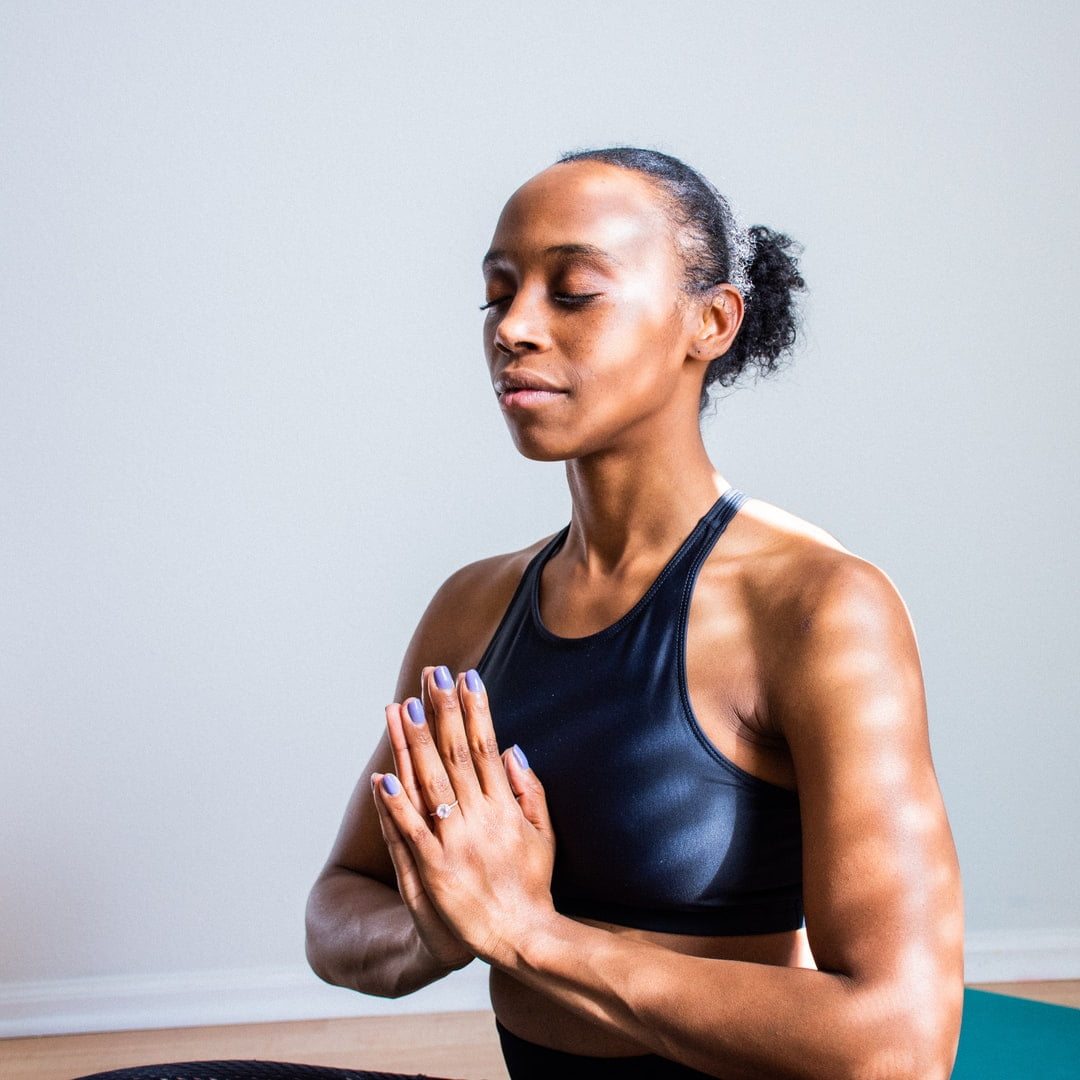🧡 Pre-Order now 🧡

It is not uncommon to feel anxious at some point in our lives. Whether it be from work, school, or personal stressors, anxiety can have a negative impact on our day-to-day routine. According to the Anxiety and Depression Association of America, anxiety disorders are the most common mental illness in the United States, affecting 40 million adults (18% of the population). That being said, it is important to find ways to manage anxiety in a healthy way.One method that has gained popularity in recent years is taking nootropics for anxiety. Nootropics are often referred to as “smart drugs” or “cognitive enhancers” because they are suggested to improve cognitive function. While there is still much research needed regarding their efficacy, some people swear by them as a way to help reduce anxiety levels.There are many different types of nootropics available on the market today, so it is important to do your research before taking them. Some common nootropics that have been shown to help with anxiety include: ashwagandha, L-theanine, magnesium threonate and Rhodiola rosea. If you are considering taking nootropics for your anxiety,be sure to speak with your doctor first to see if they are right for you.
Anxiety disorders are the most common mental illness in the United States, affecting 40 million adults. That’s 18% of the US population. Despite how common it is, only 36.9% of people with anxiety receive treatment.There are many different types of anxiety disorders, each with their own symptoms. Some people may experience one specific type of anxiety disorder, while others may experience multiple types at once. The most common types of anxiety disorders are:Generalized Anxiety Disorder (GAD): People with GAD worry about a lot of things on a daily basis and have a hard time controlling their worry. They may feel restless, have trouble sleeping, or sweat more than normal.Panic Disorder: Panic disorder is characterized by recurrent panic attacks that happen without any trigger or warning sign. These attacks can cause chest pain, shortness of breath, heart palpitations, sweating, and dizziness/lightheadedness. People with panic disorder often live in fear of having another attack and avoid places or situations where they think an attack could happen again . Social Anxiety Disorder (SAD): Also known as social phobia, SAD is marked by intense anxiety or fear around other people (evenif they’re just acquaintances) and in social situations. People with SAD may avoid social interactions, feel nauseous or dizzy in social situations, or have a hard time talking to people.Specific Phobias: A specific phobia is an intense fear of a specific thing or situation (e.g., heights, needles, dogs, flying). People with specific phobias will go to great lengths to avoid the thing they’re afraid of and may have panic attacks when faced with the object of their fear .Obsessive-Compulsive Disorder (OCD): OCD is characterized by intrusive and unwanted thoughts (obsessions) that lead people to engage in repetitive behaviors or rituals (compulsions) in order to try to “fix” or neutralize their obsessions. Common obsessions include contamination/germs, worries about losing things, aggressive or horrific thoughts, and having things symmetrical or “just right.” Comp


Nootropics are one of those natural means to help people with anxiety disorders. There are plenty of people who swear by them and their benefits. Nootropics can be an effective way to ease anxiety, improve focus, and boost productivity. They can also promote better sleep quality and help reduce stress levels.
Nootropics are drugs or supplements that claim to boost cognitive performance, and they have become increasingly popular in recent years as more and more people strive to gain an edge in the competitive world. While there is some evidence that nootropics can improve memory and attention, the jury is still out on whether they actually work, and there are potential risks associated with their use. If you're considering taking a nootropic, it's important to talk to your doctor first to make sure it's safe for you.
Nootropics are substances that can be taken to improve cognitive function. The word "nootropic" comes from the Greek words "nous" and "trepein," which together mean "mind" and "turning." Nootropics can be used to improve memory, focus, motivation, energy levels, and overall brain health.Most nootropics work by modulating neurotransmitters in the brain. Neurotransmitters are chemicals that help relay signals between nerve cells. By modulating neurotransmitter levels, nootropics can improve communication between cells and help the brain function more efficiently.There are many different types of nootropics available on the market today. Some of the most popular include Piracetam, Aniracetam, Noopept, and Pramiracetam. These substances have been shown to be safe and effective at improving cognitive function in both healthy adults and those with specific neurological conditions such as Alzheimer's disease or Parkinson's disease.

A number of factors can contribute to feelings of anxiety, including genetics, brain chemistry, and life experiences. For some people, anxiety can be a chronic condition that interferes with daily living. Nootropics are a type of supplement that some people take to help improve cognitive function and ease anxiety symptoms. While there is no cure for anxiety, nootropics may offer relief from symptoms for some people.Nootropics work by affecting the levels of neurotransmitters in the brain. Neurotransmitters are chemicals that transmit signals between nerve cells. Some nootropics work by increasing the level of neurotransmitters that have calming effects, such as serotonin and gamma-aminobutyric acid (GABA). Others work by blocking receptors for excitatory neurotransmitters like glutamate. By affecting neurotransmitter levels, nootropics can help to ease anxiety symptoms such as racing thoughts, irritability, and restlessness.Some common nootropics used for treating anxiety include L-theanine, ashwagandha, Rhodiola rosea , and magnesium glycinate. L-theanine is an amino acid found naturally in tea leaves. It works by increasing levels of GABA in the brain whichcan help to reduce anxiety. Ashwagandha is an herb traditionally used in Ayurvedic medicine to help relieve stress and anxiety. Rhodiola rosea is a plant that has been shown to help improve mood and ease anxiety symptoms. Magnesium glycinate is a form of magnesium that is easily absorbed by the body and can help to reduce stress and promote relaxation.
Anxiety is a very common condition that can have a significant impact on quality of life. While there are many conventional treatments available, some people may prefer to try nootropics, which are substances that are claimed to have cognitive-enhancing effects.Nootropics are generally considered safe when used in moderation, but there is always the potential for side effects and interactions with other medications. If you're considering taking nootropics for anxiety, it's important to speak with your doctor first to make sure they're right for you.
If you're considering taking nootropics, it's important to ask yourself if they're right for you. Depending on your goals and the severity of your anxiety, nootropics may or may not be the best solution.There are many different types of nootropics available on the market, so it's important to do your research before deciding which one is right for you. If you have moderate to severe anxiety, it's likely that you'll need a higher dose of a nootropic than someone with milder anxiety.Nootropics can have different effects on different people, so it's important to start with a low dose and see how your body responds. If you don't notice any difference after taking a low dose for several weeks, it's unlikely that nootropics will help reduce your anxiety levels.

Anxiety is a common mental health disorder that can have a negative impact on your quality of life. If you're struggling with anxiety, you may be interested in trying nootropics. Nootropics are a type of supplement that's claimed to boost cognitive function and promote brain health. Some people believe that taking nootropics can help relieve symptoms of anxiety, although there is limited scientific evidence to support this claim.There are many different types of nootropics available on the market, and it can be difficult to know which one is right for you. Some common nootropics that are sometimes used to treat anxiety include L-theanine, magnesium, and omega-3 fatty acids. It's important to speak with your doctor before taking any supplements, as they may interact with medications you're already taking or have other side effects.If you're considering trying nootropics for anxiety relief, it's important to do your research and work with a qualified healthcare professional to ensure they're right for you.
There are many different kinds of nootropics on the market today, and it can be difficult to know which one is right for you. When you're looking for a quality nootropic, there are a few things you should keep in mind. First, you want to make sure that the nootropic is backed by science. There are many products on the market that claim to be effective but have little to no scientific evidence to back up their claims. Second, you want to make sure that the nootropic is safe. There are some natural ingredients that can cause side effects if they're not used correctly. Finally, you want to make sure that the nootropic is affordable. There's no point in spending a lot of money on something if it's not going to work well for you. Keep these things in mind and you'll be able to find a quality nootropic that works well for you.
If you're interested in taking nootropics for anxiety, there are a few things to keep in mind. First, it's important to understand that not all nootropics are created equal. There are many different types and strains of nootropics, and each one can have different effects on the body. It's important to do your research and choose a nootropic that is right for you.Once you've found a few potential options, it's time to start experimenting. Start with lower doses and see how your body reacts. If you don't notice any effects after a week or two, increase the dose slightly and see if that makes a difference. It's important to be patient when taking nootropics, as they can take several weeks or even months to reach their full effect.If you find that nootropics help reduce your anxiety levels, stick with them! They can be an extremely effective way to manage anxiety without having to rely on prescription medications.

If you're looking to take nootropics to help with anxiety, there are a few other lifestyle changes you can make in order to see the best results. First, take a look at your diet and make sure you're eating healthy, whole foods that provide all the nutrients your body needs. Reducing or eliminating processed foods and excess sugar can also be helpful. Exercise is another important factor when it comes to managing anxiety; even just 30 minutes of moderate exercise each day can help reduce symptoms. Finally, make sure you're getting enough sleep; aim for 7-8 hours per night. When you combines these healthy lifestyle choices with taking nootropics, you should start to see a reduction in anxiety levels.
There are many different nootropics on the market that can be used to help with anxiety, and it is important to know what to expect when taking them. The most common type of nootropic for anxiety is an SSRI, or selective serotonin reuptake inhibitor. These medications help to increase levels of serotonin in the brain, which can help to improve mood and reduce anxiety. Other types of nootropics that may be effective for anxiety include omega-3 fatty acids, magnesium supplements, and Rhodiola rosea. It is important to speak with a doctor before taking any type of supplement, as they can interact with other medications you may be taking and cause unwanted side effects.
This is a common question asked by those considering taking anxiety nootropics. The simple answer is that everyone is different and will experience different results. Some people see results immediately, while others may take a few weeks or longer to see any changes.Anxiety nootropics work by helping to regulate the brain chemistry and reduce anxiety symptoms. For some people, this can happen quickly, while for others it may take longer for the full effects to be felt. It is important to give any supplement or medication time to work before making a judgement on its effectiveness.

Nootropics are a class of cognitive-enhancing drugs that have become increasingly popular in recent years, as more and more people seek to boost their brainpower. Many nootropics are advertised as being safe and effective for treating various conditions, including anxiety. However, some experts caution that there may be unknown risks associated with taking these drugs long-term.While the short-term effects of nootropics on anxiety may be beneficial, it is unclear what the long-term consequences may be. Some worry that chronic use of nootropics could lead to dependence or even addiction. Others argue that there is not enough evidence to support these claims, and that further research is needed before any conclusions can be drawn.Whether or not there are long-term risks associated with taking nootropics for anxiety remains to be seen. In the meantime, it is important to consult with a qualified medical professional before starting any new medication regimen, especially if you have a history of mental illness.
If you're interested in taking nootropics for anxiety, there are a few things you should keep in mind. First, it's important to choose a reputable brand that offers high-quality, clinically-proven products. Second, be sure to start with a low dose and increase gradually as needed. And third, give yourself some time to see how the nootropics work for you - don't expect immediate results.There are a variety of different nootropics on the market, so it's important to do your research and find one that's right for you. If you're not sure where to start, we recommend speaking with your doctor or a qualified health professional who can help you choose the best product for your needs.
Though more research is needed in regards to nootropics and anxiety, the current indications are that they could be helpful in reducing anxiety. For those who suffer from anxiety, this is a potential treatment option worth considering. However, as with any new medication or supplement, it is important to speak with a healthcare professional before starting any new regimen.
